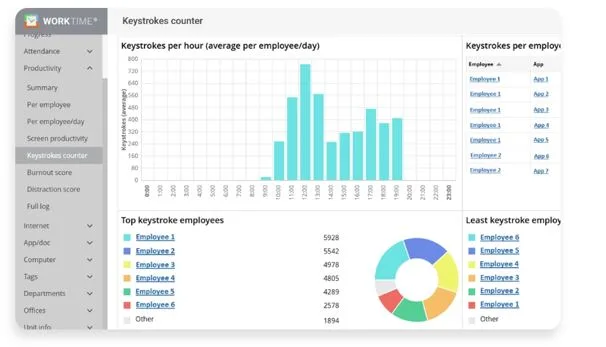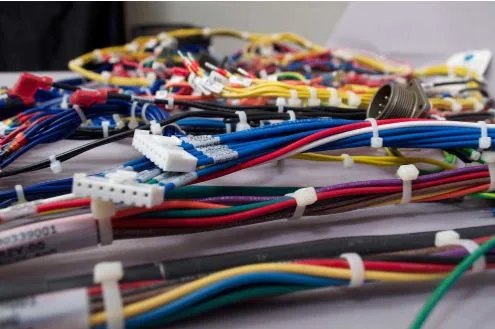The future of productivity: Keystroke tracking that respects privacy
Remote work has become a standard for many industries, pushing companies to rethink how they manage and assess employee productivity. The key challenge? Finding a way to monitor workflow without undermining trust or violating privacy. That’s where keystroke tracking provides a viable and ethical solution—allowing teams to understand work patterns without prying into personal content.
The days of aggressive monitoring software that logs every typed character are fading. In their place, modern tracking tools are emerging—ones designed with compliance, transparency, and respect at their core. These systems focus on activity metrics, such as typing frequency or idle time, instead of capturing sensitive data. The result? More reliable performance data without compromising individual privacy.
This change isn’t just about optics. In an era of increasing legal obligations—like GDPR, HIPAA, and other international standards—companies must show that they handle employee data responsibly. Non-invasive tools, which avoid content collection altogether, significantly lower compliance risks while still offering meaningful insights into day-to-day operations.
Why surveillance fails in the modern office
Old-school surveillance methods, like full keylogging, may seem useful at first glance. They offer a complete picture of what employees are typing—but at the cost of trust, security, and legality. These tools often collect more information than necessary, creating vulnerabilities that can be exploited if data is mishandled or leaked.
Worse, invasive tracking creates a hostile work environment. When employees feel monitored without consent, stress levels rise and morale falls. What’s intended to boost productivity can backfire, leading to disengagement or even staff turnover. Clearly, businesses need a smarter, more humane solution—one that values both performance and privacy.
The case for ethical activity tracking
Instead of monitoring content, responsible platforms focus on how work happens. Tracking keystroke volume, for example, reveals active engagement without crossing personal boundaries. These metrics provide managers with real-time data on workload distribution, peak performance hours, and time-on-task ratios—key indicators of individual and team productivity.
By choosing this approach, employers foster a sense of autonomy. Employees can work freely, knowing their privacy isn’t at risk, while still remaining accountable to shared performance goals. This creates an environment where respect and results go hand in hand.
Such methods are not only more ethical—they’re also more effective in the long term. Transparency builds loyalty, reduces friction, and supports a sustainable culture of performance improvement.
WorkTime’s productivity-first monitoring platform
WorkTime offers a tracking solution built specifically for ethical oversight. Unlike traditional software, its keystroke tracker records no text input—only the frequency of activity. This preserves employee privacy while providing leadership with the data they need to guide strategy, planning, and evaluations.
- Privacy-driven functionality: no key content is captured, only activity statistics
- Real-time insights: dashboards help identify workflow bottlenecks and performance peaks
- Regulatory alignment: adheres to global data security standards and legal frameworks
- Broad compatibility: works across remote, hybrid, and in-office environments
- Scalable and efficient: suited for growing teams and enterprise-level organizations
WorkTime empowers businesses to collect valuable operational insights without compromising core values. Its design philosophy combines ethical responsibility with technical precision, ensuring that teams can be monitored effectively and respectfully.
Data without intrusion: a cultural advantage
Monitoring doesn’t have to feel like micromanagement. When implemented correctly, it becomes a tool for improvement—not control. Employees who understand how and why tracking is done are more likely to accept it and even appreciate the structure it brings.
This level of acceptance enhances collaboration and lowers resistance to performance assessments. It also ensures smoother onboarding, better feedback loops, and clearer communication between team members and supervisors. Ethical tools help align individual goals with company objectives, creating mutual accountability without resentment.
Such cultural benefits can be just as impactful as the data itself. Businesses that embrace transparency through tools like WorkTime show that they respect their people and believe in fair leadership. That reputation carries weight—both internally and in the market.
Secure tracking that supports long-term growth
The most efficient tools are those that adapt to changing work conditions. As businesses scale or shift between in-office and remote models, monitoring systems must remain reliable and easy to use. WorkTime’s platform delivers this adaptability through seamless integration and user-friendly dashboards.
It’s not just about tracking—it’s about enabling smarter decision-making. By collecting behavioral data in a non-invasive way, companies gain visibility into performance drivers and operational trends. Over time, these insights help fine-tune processes, redistribute workloads, and elevate team output—all without compromising ethical standards.
As the workplace continues to evolve, solutions like keystroke logging software from WorkTime offer the clarity needed to grow responsibly. They prove that integrity and efficiency can go hand in hand.
Conclusion: Ethical monitoring for modern performance
Ethical monitoring isn’t just a best practice—it’s becoming a necessity. With legal regulations tightening and employee expectations rising, businesses need tools that reflect their values. WorkTime delivers on this promise with a solution that balances productivity goals with privacy protections.
Through non-invasive keystroke tracking, companies can remain agile, compliant, and trustworthy. It’s a smarter way to work—one that promotes transparency, strengthens culture, and drives measurable results. In a world where trust is a competitive advantage, responsible monitoring is no longer optional—it’s essential.





